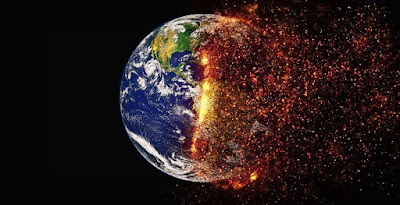What has the International Federation of Red Crescent and Red Cross Societies done to adapt to climate change?
The International Federation of Red Cross and Red Crescent Societies is the largest non-governmental humanitarian network in the world and it helps people in about (150 countries).
The Federation, which was founded in 1919 and is headquartered in Geneva / Switzerland, includes 186 Red Cross and Red Crescent societies and about 100 million volunteers, and the basic principles of the union are humanity, through which it aims to avoid and alleviate human suffering wherever it is found, protect life and health, ensure respect for human beings and achieve lasting peace among all peoples, impartiality as the movement does not practice any discrimination on the basis of race nationality or religious beliefs, in addition to neutrality - independence - voluntary service - unity - and universality.
The mission of the International Federation of Red Cross and Red Crescent Societies is to improve the situation of the most vulnerable and coordinate emergency international assistance to people affected by natural and man-made disasters, including forced displacement and health crises.
The Federation also assists the most vulnerable communities At the same time, staff and volunteers of National Red Cross and Red Crescent Societies sometimes assist displaced populations, providing food, water, relief supplies, health care and psychosocial support to vulnerable people in UNHCR-run camps.
In view of the great humanitarian role played by the International Federation as a neutral mediator to provide protection and assistance to victims of international and non-international armed conflicts and its active role in addressing urgent issues that have occurred and are occurring in the world, the United Nations General Assembly decided on October 16, 1990 Inviting the International Committee of the Red Cross to participate as an observer in its session and its work in a precedent that is the first of its kind in the world in which a non-governmental body is granted observer status at the United Nations.
The special status granted to it by the Geneva Conventions of August 12, 1949, its role in codifying, developing and applying international humanitarian law, and its role as a neutral and impartial mediator who works with dedication and disseminates humanitarian ideals in situations of armed conflict).
The International Committee of the Red Cross is also considered the first to coin the term international humanitarian law through its former legal president, Max Haber, and it can be said that it is a set of internationally agreed principles and rules that aim to reduce the use of violence in times of armed conflict by protecting individuals who They were involved in military operations or who stopped participating in them, wounded, prisoners and civilians, as well as by limiting violence in military battles to those actions necessary to achieve the military goal, which had a significant impact in determining the laws and legislations related to the environment and climate change. .


Comments
Post a Comment
Thank you for comment